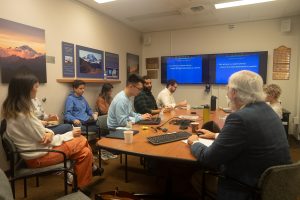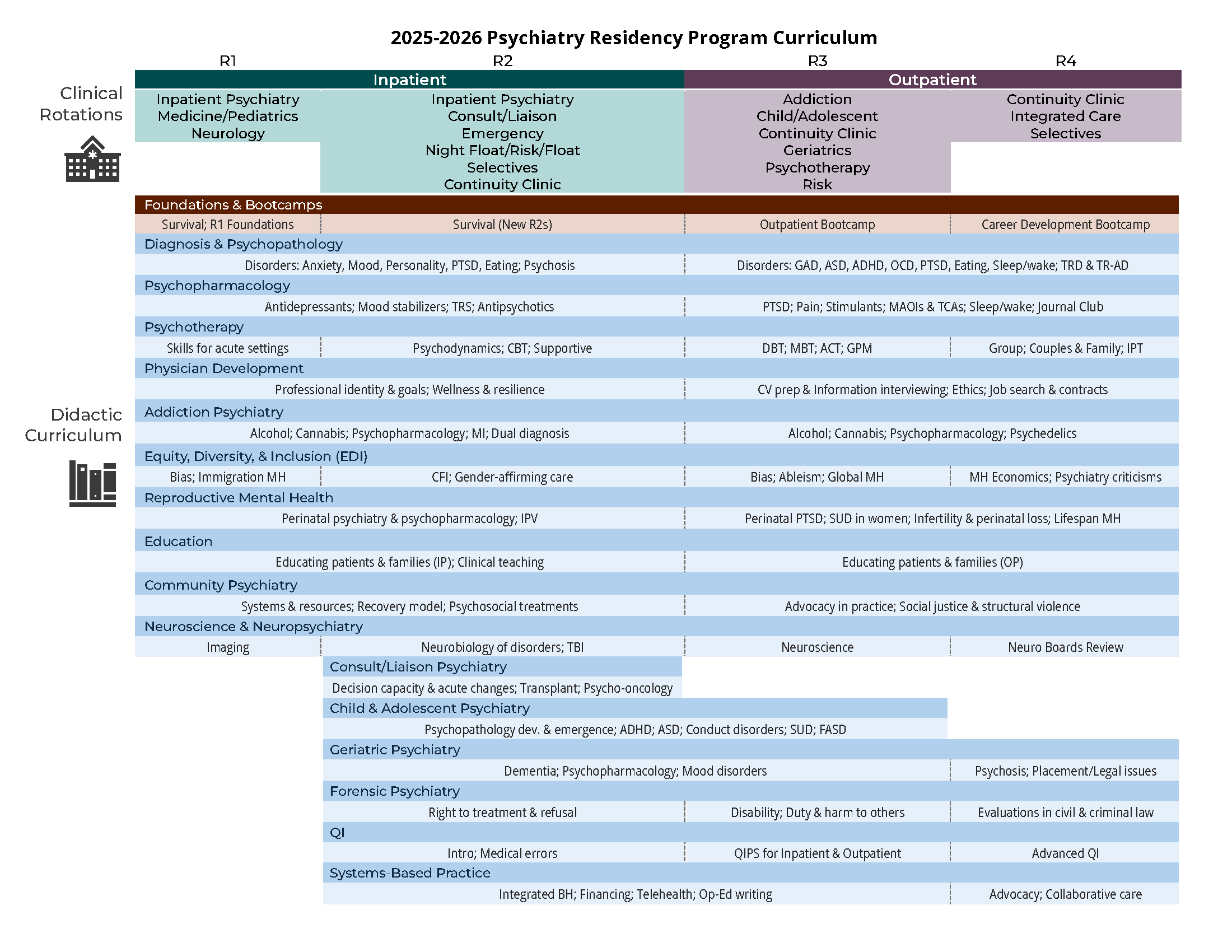 The UW Psychiatry residency program offers protected didactics one half-day per week on Thursdays. Didactics are grouped into modules that span across four years and are updated yearly by an appointed faculty member and instructional designer. Residents have an opportunity to provide feedback on their didactics through weekly evaluations that are sent to didactic presenters, module leaders, and the curriculum committee. Evaluations give an opportunity to comment on the content of the didactic, the learning strategies used by the presenter, and how well the presenter includes EDI-related content and creates an inclusive learning environment. Didactics are held at the Center for Behavioral Health and Learning located on the University of Washington Medical Center Northwest Campus.
The UW Psychiatry residency program offers protected didactics one half-day per week on Thursdays. Didactics are grouped into modules that span across four years and are updated yearly by an appointed faculty member and instructional designer. Residents have an opportunity to provide feedback on their didactics through weekly evaluations that are sent to didactic presenters, module leaders, and the curriculum committee. Evaluations give an opportunity to comment on the content of the didactic, the learning strategies used by the presenter, and how well the presenter includes EDI-related content and creates an inclusive learning environment. Didactics are held at the Center for Behavioral Health and Learning located on the University of Washington Medical Center Northwest Campus.
Residents also attend weekly Departmental Grand Rounds on Fridays during the academic year, site-based journal clubs and resident-led educational activities at each hospital site during R1 and R2 years, psychotherapy seminars at each continuity clinic site during R2 and R3 years, and a 6-month seminar on countertransference during R3 year called Clinical Interactions Seminar.
R4s are given an opportunity to teach the R1s and R2s at Harborview Medical Center Noon Conference. The Teacher Scholar Pathway also offers interested residents the opportunity to engage in educational activities within psychiatry and other disciplines.
